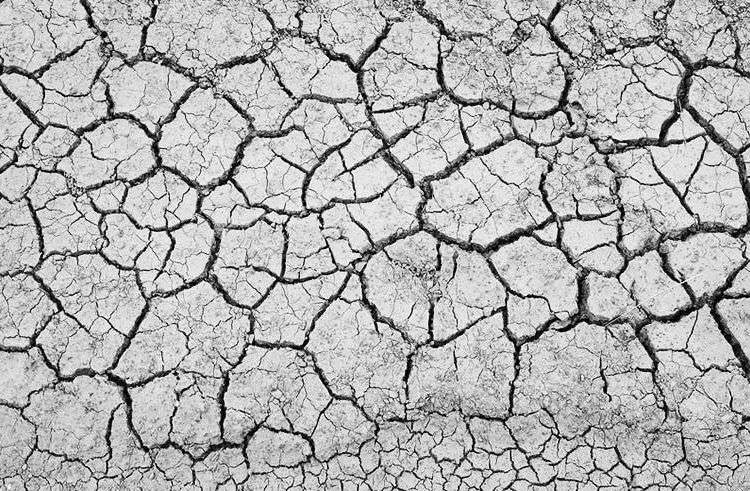I am reading the poet Leymen Perez (Matanzas, 1976), who in turn gets us into a reading scene, a flow:
“While reading fragments of Heraclitus of Ephesus / oppression of my blood increased and decreased / the cry of the water seller/ tasting to little fertile land.
In well sealed and labeled bags the water arrived / to the dry mouths of the island. It came across the water / souls rescuers, false atoms / that fake democracy produces.
The fragments of Heraclitus travelled / from a bag to another. / Like dead that feed on themselves, they travel. “
The poem is called “Vendedor de Agua” (Water Seller) and is part of Heraclitus’ book, published by Ediciones Union in 2012. A possible tour of this book emerges from there: the water tastes like earth, water suspension with soil.
The famous ¨the whole¨ flows from the Greek philosopher, recycled and displaced. Other things, other atoms can be moved but not this water that reaches our mouths. The earth weighs. The earth does not flow, does not recirculate, and does not change. Heraclitus was wrong; the poet shoots from the very beginning, from the first of a series of texts in which the land will be central element.
Poems that speak of many, poor, bitter, and little fertile land. In one of them, a country is planted in the yard and the country does not grow; in another, you have to dig ever further toward the land. We are mobilized immediately in rhetoric, roots and land tuber that gave us birth; I think about that old doctrine of the ripe fruit: here Cuba – Leymen calls it “sunny peel” – has been the unripe fruit ever that rots without even being seed.
But the earth is also the dead people. Its weight is the weight of the dead, as we read in the poem “Los muertos en Cuba” (The Dead in Cuba):
“They breathe / convey a sense / a pace drawer / a living language / between the wars / between the line of the edge or meat / -crude or cooked / according to Heraclitus´ order.”
That is what the book is for. It is after this –sharp and precise as a cut- idea to have some order in a language that lives between the wars, full of dead language. Interestingly, Heraclitus also appeared in the novel I was reading just before this book: ¨El fuego secreto¨ (The secret fire), by the insurmountable Fernando Vallejo, who pointed out that when the philosopher postulated that metaphor of the river that is never the same, did not really know what he was talking about. Because, what were the rivers for him? The Greeks rivers: the Achelous, Alpheus, Nestos … (When talking about rivers we must mention those from Colombia that are full of gators!) Leymen goes beyond: the Heraclitus of his book has nothing to do with streams. In one of the poems, entitled “In Matanzas Terminal”, we found him sitting in front of a statue counting souls of dead people, touching shadows with his hand. In the following poem, “Dead Earth”, we read about mutilated hands that “row against the earth.”
In short, as a damned circumstance:
“There is dead land in the dead blood / of independence men / that can not reincarnate / in rapid seeds of the shades / and in language that opens itself / like a wound / in the fruit you buy / and sale / in Cuban hordes / within nature that passes / from Florida and lands / in Havana there is dead land.”
I return for a moment to the image of the philosopher of Ephesus sitting in front of the statue. If Cuban poetry books would give birth –I am just thinking- to small fictions able to go out, so to say, alone on the street; that of Heraclitus´ book would be that extrapolated scene of the text “In Matanzas Terminal”. An old man (very old, I guess) with ragged beard (for some reason, you have to imagine him with a beard), wearing what looks like a sheet (of jute, perhaps), stands up and walks leaning on his stick, raising his fingers wrinkled and stained of ground. As one who counts shadows. Like one who has a secret order, a dark order. People passing by look at him and asks: What does he do? Is he a madman? Is he a beggar? Is he a foreigner? Is it a performance? Is he a double of Heraclitus? Is Leymen Perez? Who is him?
It does not matter (none of this, of course, matter in the least). Whoever he is, the old man looks around with resignation and apparently absent. Too much ancient philosophy. “Too many remains,” that is the title of another poem in the book, which reads:
“On the landscape / debris. / In remains of a landscape / we have become. / Dry earth, / country that has allowed being drought / Like a soul that has been / built.”
But the landscape could be worse. We could not even have lines like the aforementioned. I mean, you breathe and say, well, but at least within the landscape there are writers who sit to build their works, with strength, stubbornness, thinking that the language may be found somewhere as a succession of injuries, blood flowing, war line. Anyway.










